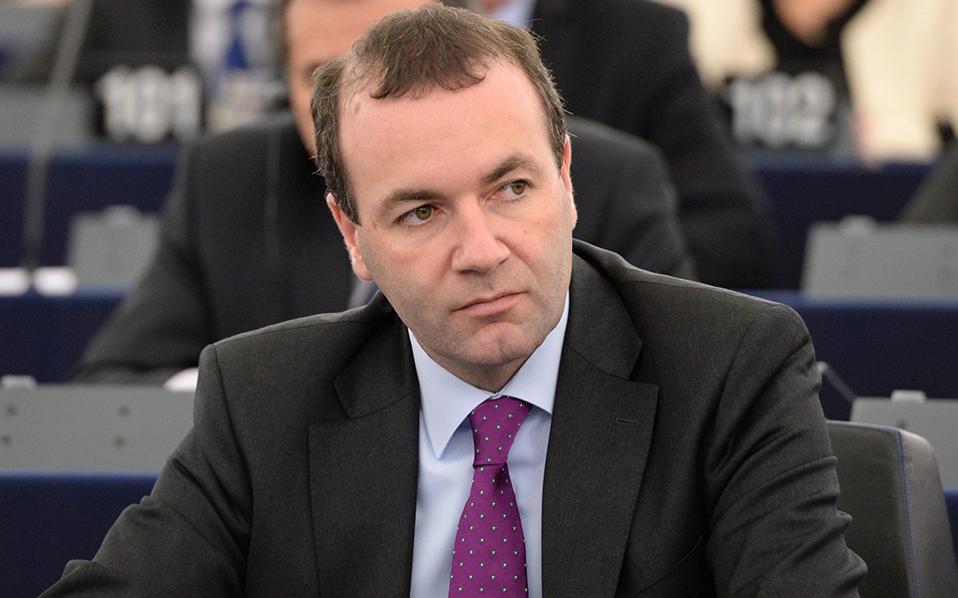German conservative euro-MP breaks ranks over IMF role in Greek bailout

IMF participation is no longer crucial for Greece's bailout program, a German euro-lawmaker close to Chancellor Angela Merkel said on Thursday, breaking ranks with Berlin's official line that the program would end if the Fund pulled out.
The International Monetary Fund has yet to decide if it will fund the bailout, Greece's third, and says Athens can only hit mandated fiscal targets if it is granted significant debt relief.
The German government – gearing up for what are forecast to be close-run national elections in September – opposes debt relief, and also says the current program could only continue if the Fund joined in.
But Manfred Weber, who leads the conservative bloc in the European Parliament, said that the IMF's role was no longer crucial.
"If the IMF insists on a debt cut, then one should let it go," he told the Sueddeutsche Zeitung newspaper. "Europe can stand on its own feet now."
The impasse between Greece's international lenders over the country's fiscal targets has slowed progress on a bailout review and rekindled fears of a new financial crisis in Europe.
German Finance Minister Wolfgang Schaeuble said last week that Greece would have to leave the euro zone if it failed to meet its bailout commitments, while the IMF needed to stay on board.
"(IMF involvement) is indispensable for us. That's what the Bundestag agreed on," Hans Michelbach, a senior member of Merkel's conservative bloc in the lower house of parliament, told Reuters on Thursday.
The conservatives' parliamentary floor leader, Volker Kauder, told Focus magazine: "We insist on the commitments. And the International Monetary Fund must remain on board. Otherwise, we can't approve any further aid."
Both Michelbach and Weber are senior members of the CSU, the Bavarian sister party of Merkel's CDU.
The IMF argues that Greece will not achieve a targeted fiscal surplus before debt servicing costs of 3.5 percent of GDP unless it adopts more austerity measures and gets debt relief.
The issue is crucial because the higher the surplus and the longer it is maintained, the less the need for further debt relief.
Berlin, which agrees Greece needs more reforms to improve its competitiveness, believes the Fund can add credibility to the Greek bailout.
EU officials have called IMF projections "pessimistic".
On Wednesday, European Commissioner for Economic and Financial Affairs Pierre Moscovici said the bailout review talks had made progress, but more action was needed to wrap them up.
[Reuters]





